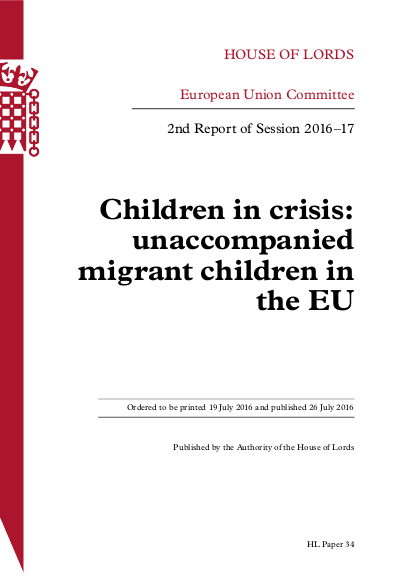
The current refugee crisis is the greatest humanitarian challenge to have faced the European Union since its foundation. Although the outcome of the referendum on 23 June 2016 was that the UK should leave the EU, the UK remains a full member of the EU, with all the responsibilities that entails, until the final withdrawal agreement is ratified. It is vital, both on moral grounds and in order to help maintain good relations with the other 27 Member States, that the UK Government should participate fully in EU action to resolve this humanitarian crisis.
It has become increasingly clear that children, many of them unaccompanied by a parent, relative or guardian, are in the forefront of the crisis. In 2015 88,245 unaccompanied children applied for asylum in the EU, including 3,045 in the UK. In May 2016 alone, 3,133 unaccompanied migrant children arrived in Italy. Many children do not even reach the EU’s shores: at least 137 children have drowned in the Mediterranean since the start of 2016.
The implementation of existing EU measures to protect unaccompanied migrant children has been poor, and the European Commission has not renewed its 2010–2014 Action Plan on unaccompanied minors. We are concerned that the EU and its Member States—including the UK—may have lost sight of the plight of unaccompanied migrant children. We have therefore sought to assess the nature and scale of the challenges they face across the EU. We have asked whether existing EU provisions are sufficiently clear and enforceable, and what further measures are needed to address the needs of unaccompanied migrant children.